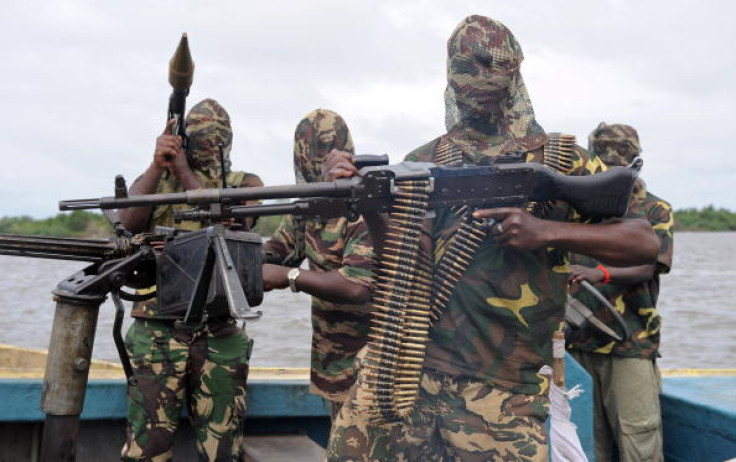Army must return stolen golden sword to restive Niger Delta says President Buhari
Return of traditional symbol of authority in Gbaramatu Kingdom part of efforts to promote peace.
Nigeria's President Muhammadu Buhari is believed to have ordered the army to return a golden sword allegedly stolen during a raid in the traditional Gbaramatu Kingdom, in the Delta state. The military allegedly stole the sword as they were looking for militants last year.
Former militant commander Government Ekpemupolo, known as Tompolo, had threatened to take steps to recover the missing sword, which is regarded as the traditional symbol of authority of the Kingdom.
A source close to the president, currently on medical leave in London, said the return of the sword was part of the governement's effort to promote peace in the restive Niger Delta.
The oil-rich area has been witnessing renewed violence with militant groups bombing oil and gas installations, affecting the country's oil production.
"The presidential order also directed that a search for the Golden Sword of the kingdom allegedly confiscated, if this is found to be so, should be recovered and once located promptly released to the Kingdom with an apology," the source was quoted by the Vanguard as saying.
It is also believed a military intervention in the Delta is being scaled down to foster peace talks with militant groups and local leaders.
Vice-President Yemi Osinbajo, who is currently covering presidential duties, met key leaders of the Delta in an official visit earlier in February.

Peace talks
Last year, Buhari met leaders of the Delta region to discuss solutions to renewed violence in the oil-rich area.
Nigeria's oil wars
Attacks on oil pipelines, carried out mainly by the Niger Delta Avengers (NDA) , have brought Nigeria's oil production to a 30-year low.
The group, which says it fights to end disenfranchisement of impoverished communities in the Delta and obtain greater shares of oil revenues, vowed to bring the country's oil production "to zero".
Nigeria, one of Africa's biggest oil producers, currently produces between 1.9 million (bpd) and 2.1 million (bdp). Oil output was 2.2m bdp at the beginning of 2016, before attacks started.
Buhari said the Nigerian government would invest $10bn (£8bn) in the area to build infrastructure and put an end to the militant insurgency in the area.
Leaders from the Delta presented a 16-point proposal to resolve renewed violence. The document calls, among other things, on the full implementation of the amnesty programme to reintegrate ex-militants in communities, assist displaced people, improving infrastructure and clean-up territories damaged by repeated oil spills.
Buhari welcomed the 16-point request, but claimed leaders in the Delta "had more to do" to ensure peace, given their influence on militant groups in the area.
Nigeria up close: Check out our Flipboard magazine
Birth of militants in Niger Delta
Militant groups in the oil-rich Niger Delta region took hold in the early 2000s following the deterioration of living conditions blamed on the increase of oil-related activities by foreign exploration corporations. Tensions flared up in the local communities as some ethnic groups felt they were being exploited and did not benefit from the crude oil on their land.
The repeated oil spills that considerably damaged the environment and affected people's health further deepened the communities' frustrations. After being elected in 2015, Buhari extended a 2009 amnesty granted to 30,000 former militants in the area.
© Copyright IBTimes 2024. All rights reserved.






